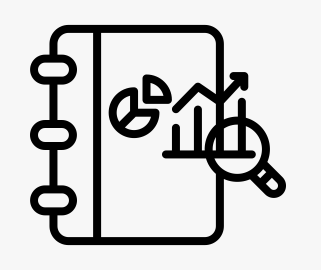
Our Research Agenda: Advancing the Financial Crime Prevention Profession
At The Institute, we are committed to spearheading progress and innovation in the financial crime prevention profession. We are dedicated to shaping the future of the field through our research agenda, specifically tailored to address key areas crucial for the success of the profession. Our research agenda, outlined below, represents our vision for a more informed, effective, and resilient profession. By exploring these strategic domains, we aim to cultivate a holistic understanding of the complexities of financial crime prevention, thereby significantly enhancing the overall effectiveness of practices in this arena.
Our approach is multifaceted, encompassing a range of critical topics from the evolution of financial crimes and the impact of regulatory policies to the mental health and well-being of professionals in the field. We believe that by addressing these diverse yet interconnected areas, we can contribute significantly to the body of knowledge, thus empowering professionals, regulators and policy makers with the tools and insights necessary for success.
The Institute is working to bridging the gap between theoretical research and practical application, ensuring that the latest academic insights translate into tangible benefits for those at the forefront of financial crime prevention. Through this comprehensive and forward-thinking research agenda, we are setting the stage for transformative changes that will reverberate throughout the profession, enhancing both its stature and impact in the broader societal context.
Professionalism in Financial Crime Prevention: Standards and Ethics
- Evaluation of Professional Standards: What are the current standards of professionalism within financial crime prevention, and what competencies and ethical practices are required?
- Ethical Challenges and Solutions: What common ethical dilemmas and challenges are faced, and what frameworks can be developed for ethical decision-making?
- Guideline Development: How can comprehensive guidelines and best practices be created to uphold integrity and professionalism in financial crime prevention?
Bridging Theory and Practice in Financial Crime Strategies
- Effectiveness of Theoretical Models: How do current theoretical models align with practical applications in preventing financial crimes?
- Gap Analysis: Where do gaps exist between academic research and practical implementation, and how can they be addressed?
- Strategy Formulation: What actionable strategies can be developed to incorporate academic insights into practical financial crime prevention methods?
Evolving Dynamics of Financial Crimes
- Trend Analysis: What are the current and emerging trends in financial crime, and how do technologies affect these crimes?
- Technological Impact Assessment: What is the impact of new technologies on financial crime and its prevention?
- Strategy Adaptation and Development: How can strategies be adapted and developed to respond to evolving financial crime landscapes?
Professional Development and Continuing Education
- Current State Assessment: How effective and relevant are existing educational programmes and professional development opportunities?
- Curriculum Development: What new curricula and training programs are needed to address current and future skill requirements?
- Continuing Education Strategies: What strategies can be developed for lifelong learning and continuous skill improvement in the profession?
Collaboration and Knowledge Exchange
- Interdisciplinary Collaboration: How can collaborative networks among academics, practitioners, policymakers, and regulatory bodies be fostered?
- Knowledge Sharing Frameworks: What frameworks can be developed and implemented for effective knowledge exchange and dissemination?
- Impact Analysis: What is the impact of collaboration and knowledge exchange on the advancement of the profession?
Impact of Regulatory Policies on Professional Practice
- Regulatory Change Analysis: What is the impact of new and existing regulatory policies on financial crime prevention practices?
- Policy Guidance and Recommendations: What insights and recommendations can be provided for policymakers to enhance the profession’s effectiveness?
- Best Practice Development: How can best practices for adapting to and influencing regulatory changes be developed?
Innovations in Financial Crime Prevention Tools and Techniques
- Tool and Technology Assessment: What is the development and effectiveness of new tools and techniques in preventing financial crimes?
- Technology Adoption Challenges: What are the practical challenges in adopting new technologies within the profession?
- Innovation Promotion: How can the incorporation of innovative technologies and methods in financial crime prevention be advocated for and facilitated?
Advancing Academic Knowledge in Professional Practice
- Research into Professional Practice Elements: What foundational elements of professionalism and practice within the field require further research?
- Integration of Academic and Practical Knowledge: How can academic research be integrated into practical applications effectively?
- Cycle of Professional Growth: What strategies can ensure that academic advancements continually contribute to the profession’s development?
Mental Health and Well-being of Financial Crime Prevention Professionals
- Assessment of Mental Health Challenges: What specific mental health challenges are faced by professionals in this field?
- Development of Supportive Resources and Programmes: What targeted mental health resources, programs, and workshops can be developed for these professionals?
- Workplace Mental Health Strategies: How can mental health considerations be included in workplace policies to promote a supportive and healthy work environment?
Through this research agenda, we aim to establish The Institute as a leader in advancing the financial crime prevention profession, ensuring that it remains dynamic, effective, and ethically grounded in the face of new challenges and opportunities.


